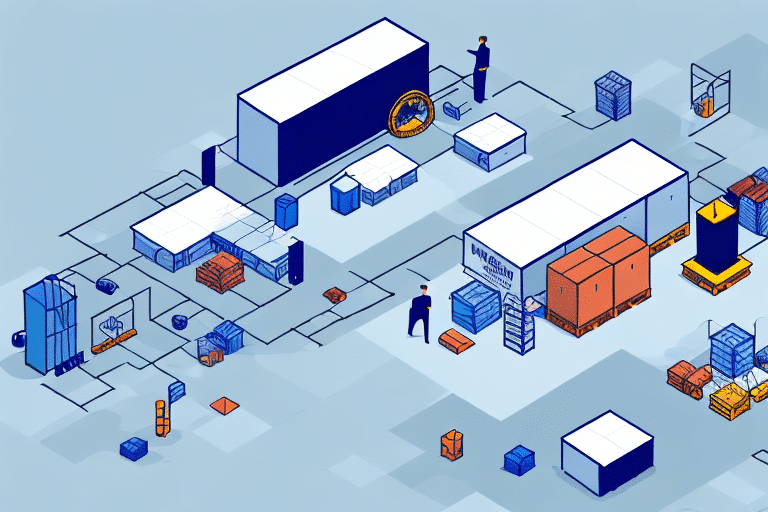Connecting DHL eCommerce with Blue Yonder WMS: A Comprehensive Guide
In the competitive landscape of today’s digital marketplace, integrating robust ecommerce solutions is essential for business success. Two pivotal tools that can elevate your ecommerce operations are DHL eCommerce and Blue Yonder WMS. This guide delves into the optimal ways to connect, optimize, and manage these platforms to streamline your business processes and enhance customer satisfaction.
Understanding DHL eCommerce and Blue Yonder WMS
DHL eCommerce is a global leader in shipping services, specializing in ecommerce delivery solutions tailored for businesses that operate internationally. It offers a wide array of shipping options designed to meet diverse shipping needs, ensuring efficient and reliable deliveries worldwide.
Blue Yonder WMS (Warehouse Management System) is an advanced platform that helps businesses optimize their inventory operations, order processing, and shipping workflows. By automating and streamlining these processes, Blue Yonder WMS enhances operational efficiency and accuracy.
Integrating DHL eCommerce with Blue Yonder WMS creates a seamless ecommerce experience, allowing businesses to manage orders, inventory, and shipments from a unified system. This integration not only simplifies operations but also enhances transparency and reliability in the supply chain.
Benefits of Integrating DHL eCommerce with Blue Yonder WMS
Enhanced Operational Efficiency
By combining DHL eCommerce’s shipping capabilities with Blue Yonder WMS’s inventory management, businesses can streamline their operations. This integration reduces manual data entry, minimizes errors, and accelerates order processing, allowing teams to focus on strategic tasks.
Cost Savings
Leveraging DHL eCommerce’s competitive shipping rates alongside Blue Yonder WMS’s automated shipping rule configurations enables businesses to select the most cost-effective shipping options for each order. This strategic approach can lead to significant savings on shipping costs.
Improved Customer Experience
The integration provides customers with accurate tracking information and faster shipping times, enhancing their overall shopping experience. Enhanced transparency and reliability help build trust and encourage repeat business.
Streamlined Returns Management
Managing returns becomes more efficient with the integrated system. Businesses can process returns seamlessly, reducing the time and effort required for manual handling and improving customer satisfaction through hassle-free return processes.
Step-by-Step Guide to Connecting DHL eCommerce with Blue Yonder WMS
Step 1: Account Setup
Create accounts with both DHL eCommerce and Blue Yonder WMS if you haven't already. Ensure that you have all necessary credentials and access permissions.
Step 2: Integration Configuration
Within Blue Yonder WMS, navigate to the integration settings and connect your DHL eCommerce account. This typically involves entering API keys and configuring connection parameters to enable seamless data flow between the two platforms.
Step 3: Configure Shipping Rules
Set up your shipping rules in Blue Yonder WMS to automatically select the most cost-effective and efficient shipping options provided by DHL eCommerce for each order. Customize these rules based on factors such as destination, package size, and delivery speed.
Step 4: Test the Integration
Before fully deploying the integration, conduct thorough testing to ensure that orders are processed correctly, shipping labels are generated accurately, and tracking information is properly synced.
Step 5: Go Live
Once testing is successful, begin processing orders using the integrated system. Monitor the initial phase closely to quickly address any issues that may arise.
Optimizing Order Fulfillment with DHL eCommerce and Blue Yonder WMS
Efficient Inventory Management
Utilize Blue Yonder WMS to maintain real-time inventory levels, ensuring that stock information is always up-to-date. This prevents overselling and helps in maintaining optimal stock levels to meet customer demand.
Automated Order Processing
Automate order processing workflows to reduce manual intervention, minimize errors, and accelerate order fulfillment times. Automation ensures that orders are processed promptly and accurately.
Real-Time Shipment Tracking
Employ DHL eCommerce’s tracking capabilities integrated with Blue Yonder WMS to monitor shipments in real-time. This allows for proactive issue identification and resolution, ensuring timely deliveries and enhancing customer satisfaction.
Utilizing DHL’s Global Network
Take advantage of DHL eCommerce’s extensive global network to reach customers in over 220 countries and territories. This broad reach enables businesses to expand their market presence and cater to a diverse customer base effectively.
Managing Inventory with DHL eCommerce and Blue Yonder WMS
Real-Time Inventory Tracking
Blue Yonder WMS provides real-time visibility into inventory levels across all locations. This ensures that businesses can manage stock more effectively, avoiding stockouts and overstock situations.
Automated Reordering
Set up automatic reorder triggers in Blue Yonder WMS to maintain optimal inventory levels. This feature ensures that reorder points are met without manual oversight, maintaining seamless inventory flow.
Predictive Analytics for Demand Forecasting
Leverage Blue Yonder’s predictive analytics to forecast demand accurately. This allows businesses to optimize inventory levels based on anticipated sales trends, enhancing order fulfillment rates and reducing excess inventory costs.
Advanced Reporting and Insights
Both DHL eCommerce and Blue Yonder WMS offer robust reporting tools. Utilize these to gain insights into inventory turnover rates, sales trends, and order fulfillment efficiency. Data-driven decisions can then be made to further optimize operations.
Tracking Shipments with DHL eCommerce and Blue Yonder WMS
Comprehensive Shipment Monitoring
Integrate DHL eCommerce’s tracking system with Blue Yonder WMS to monitor shipments from the warehouse to the customer’s doorstep. This end-to-end visibility helps in identifying and addressing potential delays swiftly.
Proactive Issue Resolution
Real-time tracking enables businesses to detect shipment issues early and take corrective actions promptly, minimizing delivery delays and enhancing reliability.
Enhanced Customer Communication
Provide customers with precise tracking information, improving their experience by keeping them informed about their order status. This transparency reduces customer service inquiries and builds trust.
Analytics and Performance Optimization
Use the integrated analytics tools to evaluate shipping performance, identify bottlenecks, and implement improvements. Continuous optimization leads to a more efficient supply chain and cost-effective shipping operations.
Automating Order Processing with DHL eCommerce and Blue Yonder WMS
Streamlined Workflow Automation
Set up automated workflows within Blue Yonder WMS to handle order processing tasks such as order verification, label generation, and shipment scheduling. Automation reduces manual workload and accelerates the fulfillment process.
Integration with Shipping APIs
Utilize DHL eCommerce’s shipping APIs to automate the generation of shipping labels and tracking numbers. This integration ensures that all shipping-related information is accurately and swiftly processed.
Error Reduction and Efficiency
Automation minimizes the risk of human errors in order processing, leading to more accurate and reliable shipments. This efficiency improves overall operational performance and customer satisfaction.
Scalability for Growing Businesses
Automating order processing allows businesses to handle increasing order volumes without a proportional increase in staffing or resources, supporting scalable growth.
Best Practices for Managing DHL eCommerce and Blue Yonder WMS Integration
Define Clear Business Requirements
Prior to integration, clearly outline your business needs and ensure that the integrated solution addresses these requirements effectively.
Thorough Testing Before Deployment
Conduct comprehensive testing of the integrated system to identify and resolve any issues before full-scale deployment, ensuring a smooth transition.
Continuous Team Training
Provide ongoing training to your team members to ensure they are proficient in using the integrated system, maximizing its benefits and minimizing operational disruptions.
Maintain Open Communication Channels
Establish clear lines of communication with both DHL eCommerce and Blue Yonder WMS support teams. Promptly address any issues or queries to maintain seamless operations.
Regular System Updates and Maintenance
Stay updated with the latest features and updates from DHL eCommerce and Blue Yonder WMS. Regular maintenance and updates help in leveraging new functionalities and maintaining system security.
Conclusion
Integrating DHL eCommerce with Blue Yonder WMS offers ecommerce businesses a powerful combination of efficient shipping and robust warehouse management. This synergy leads to streamlined operations, cost savings, and enhanced customer satisfaction. By following best practices and leveraging the integrated system's full capabilities, businesses can achieve long-term growth and maintain a competitive edge in the ecommerce landscape.






















